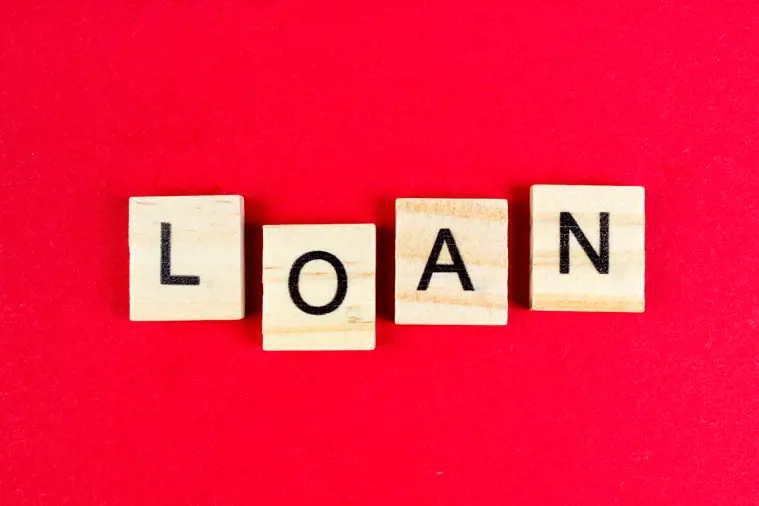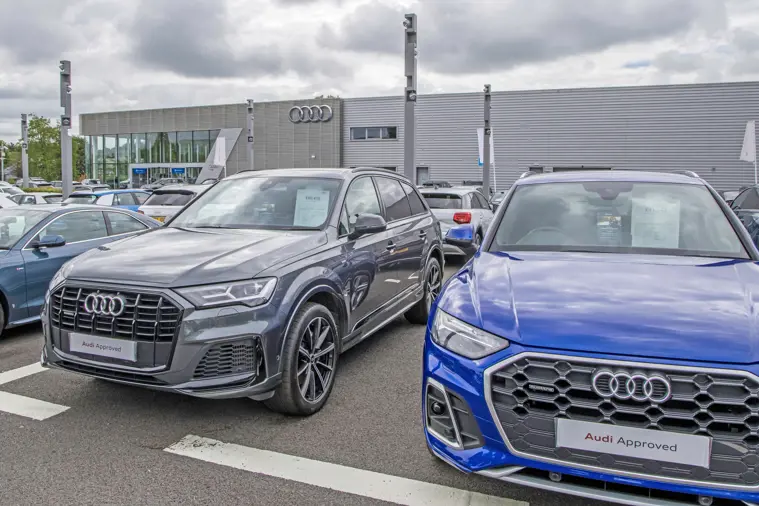Bank loan or car finance?
Spread the cost of your car over a series of monthly payments, but should you choose a bank loan or car finance

If you're in the market for a new car, then chances are you'll be borrowing money in some way and repaying it each month. Nine in ten privately-owned new cars are bought on finance and used car finance is increasingly common too.
Competitive interest rates and flexible terms bring low monthly repayments and it can be easy to upgrade to a new car at the end. You may also benefit from incentives - particularly for new vehicles - such as deposit contributions or 0% APR interest.
Car finance benefits from additional consumer protection, in case you're unfortunate to have an issue with your car or to struggle with payments.
But you don't need car finance to finance a car. Bank loans offer a straightforward loan at competitive interest rates. Taking out a personal loan will also mean that you own your new vehicle from day one.
How to compare deals
All bank loan and finance quotes should include the total amount that you pay over the course of the agreement, which will include interest charges, fees and any final payment. This makes it easy to compare the true cost of deals.
A bank loan or Hire Purchase finance for new or used cars will give you full ownership of the vehicle. This happens immediately when you buy a car with a bank loan but only once you've made the final payment on HP finance.
Personal Contract Purchase (PCP) finance defers a large part of the car's cost until the end, reducing the size of monthly repayments. Once you've made the final instalment, you can return the car, trade it in for another one or pay the remainder to own it. It's available for new or used cars.
Car leasing (also known as Personal Contract Hire, or PCH) is a long-term rental agreement for new cars. This can bring lower monthly payments than an equivalent PCP agreement but you must return the vehicle at the end.
Bank loan and car finance comparison
| Bank loan | Car finance | |
| Car ownership | Own the car from day one | Lender owns car during agreement |
| Interest rates | Competitive rates | Competitive rates 0% APR for some new cars |
| Finance incentives | No incentives | Incentives commonplace |
| Types of car | New and used cars | New and used cars |
| Repayments | Repay full cost of loan in monthly instalments | Possible to defer some of the car's cost for lower repayments |
| Credit limit | Few loans above £25,000 | Finance available for most cars |
| Responsibility for faults | Retailer responsible if car is faulty | Lender shares responsibility for faults |
Car finance - How it works
Car finance is a loan that’s secured against a new or used car. Like buying a house with a mortgage, you won’t own the vehicle until you’ve paid off the entire debt.
This can work to your advantage. As the lender owns the car, repayment options are flexible, so you can design a finance package to suit, whether you're looking for long-term ownership, low payments or regular car upgrades.
You'll often pay a deposit (although this is usually optional), followed by a series of monthly instalments. A final substantial payment may be required to take ownership of the car.
Finance costs
Strong competition from car finance companies keeps interest rates low. There are also no-deposit offers and 0% APR finance deals are common for new cars.
You can typically adjust the deposit, length of agreement and mileage limit (where applicable), to tailor the monthly payments to your budget.
Car finance consumer protection
Behind the offers and deals, car finance brings with it strong consumer protections, which can come in useful if the vehicle you receive is not as expected or has an existing issue.
Buying from an online seller such as BuyaCar means that you benefit from a 14 day returns policy.
Finance agreements involve three parties: the retailer, the customer and the lender. Should there be a problem, you can complain to the retailer. If the issue isn't resolved, you can demand that the finance company takes action, as they are responsible for dealing with complaints under the Consumer Rights Act.
The Consumer Rights Act requires a car to be of satisfactory quality (in line with its age), fit for purpose and as described. If not, you can demand a repair or replacement within six months of purchase, or reject the car within 30 days
Once you have paid half of your total car finance debt, you're able to return the vehicle to the lender, thanks to Voluntary Termination legislation. You'll have no more payments to make, but no car to show for it either.
If you don't make your payments when due, your car can be seized by the lender but they will need a court order to do so if you have repaid a third of the total debt. This is known as the 'thirds' rule.
Pay your deposit with a credit card for even more protection. This only applies to vehicles costing £30,000 or less.
Advantages of car finance
✔ Strong consumer protection.
✔ Flexible options to suit your circumstances
✔ Available for virtually any car
Disadvantages of car finance
✘ Won’t own the car straight away.
✘ Car can be repossessed if payments are missed
✘ Excess mileage and damage charges may apply if car is returned

Bank loan - how it works
Buying a car with a bank loan is straightforward. The bank lends you the money, and you use that to buy a vehicle. You immediately become the owner, so you can modify the car or sell it as you wish.
Your only responsibility to the bank is to repay the loan: it doesn't set any conditions regarding the car.
Bank loan costs
Most loans are limited to around £25,000, so few banks will lend you enough to buy a more expensive car.
Interest is charged on the loan, so you repay more than you borrow:
You might take out a loan for £13,500 over three years. At an interest rate of 3.5%, monthly payments would be £395.25.
You'll repay a total of £14,229, made up of the initial loan, plus £729 in interest.
Loans are generally unsecured, so aren't linked to the vehicle that you're buying. This can mean that interest rates are higher than secured car finance, but it also prevents your lender from being able to repossess the car if you miss payments.
In some cases, you are able to secure a loan on your house (a homeowner loan), which can reduce the interest rate that you're charged. Your home would be in danger of being repossessed if you failed to keep up with payments.
Consumer protection: after you've signed
Just like car finance, bank loans come with a 14-day cooling off period under the Consumer Credit Act. If you decide to cancel the loan during this period, you'll need to repay the money, plus the interest on the loan during the short period that it was in your account.
If you have already taken delivery of your car, then you'll need to check to see if you can still return it. If you have agreed to buy it, but not yet taken delivery, then cancellation charges may apply.
Buying a car with a loan offers the same consumer protection as if you had used your own cash. All BuyaCar cars come with a 14 day returns policy.
In addition, the Consumer Rights Act stipulates that any new or used car bought from a retailer should be of satisfactory quality (in line with its age), fit for purpose and as described. If not, then you have the right to a repair or replacement within the first six months of purchase. You can also reject it in the first 30 days.
Part-pay for a car with a credit card and you'll also benefit from extra consumer protection if the vehicle cost £30,000 or less.
Advantages of a bank loan
✔ You own the car immediately.
✔ Competitive interest rates.
✔ You're free to modify it from day one, with a towbar for instance.
Disadvantages of a bank loan
✘ Lacks the additional protections of car finance.
✘ No flexible payment options, unlike car finance PCP agreements.
✘ You may miss out on incentives offered with car finance.
Protection when paying with a credit card
Paying for part of the car (such as the deposit) on a credit card as this gives you protection for cars under £30k. This is because the credit card provider is jointly liable if anything goes wrong.
Unless you have a 0% interest introductory offer on your card, it’s worth repaying your balance immediately, as interest rates are much higher than with bank loans.
